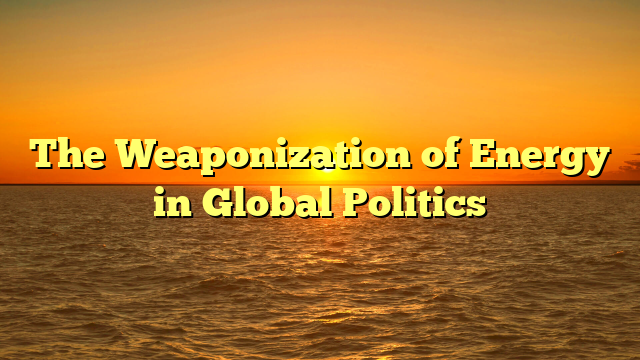Energy has always been political, but in the wake of recent conflicts and sanctions, it has become an overt tool of geopolitical leverage. The 2020s have witnessed a renewed struggle over oil, gas, and now critical minerals, reshaping slot gacor slot777 alliances and redefining power.
Russia’s invasion of Ukraine exposed Europe’s dependence on Moscow’s gas supplies. In response, the European Union accelerated its shift toward renewables, while Russia redirected exports to China and India. The once-stable energy trade has splintered into competing blocs. The Middle East, too, faces shifting dynamics as Gulf states diversify economies while balancing ties with both Washington and Beijing.
Meanwhile, the race for green energy dominance has created new fault lines. Lithium, cobalt, and rare earth elements — essential for batteries and clean technology — are now at the center of a resource scramble. China’s dominance in refining and supply chains gives it strategic advantage, prompting the U.S. and allies to seek alternatives through the “Minerals Security Partnership.”
Developing nations rich in resources, from Congo to Chile, are asserting control through nationalization and new trade frameworks. Yet environmental and labor abuses persist, sparking debates over whether “green energy” risks reproducing old colonial patterns.
Analysts warn that energy politics may increasingly drive conflict in the coming decade, especially as climate change disrupts production and infrastructure. “Control over energy is no longer just about fuel — it’s about influence, security, and survival,” says analyst Helene Dubois.
In the era of decarbonization, the question is not who owns oil, but who controls the minerals and technology shaping the post-fossil world.
